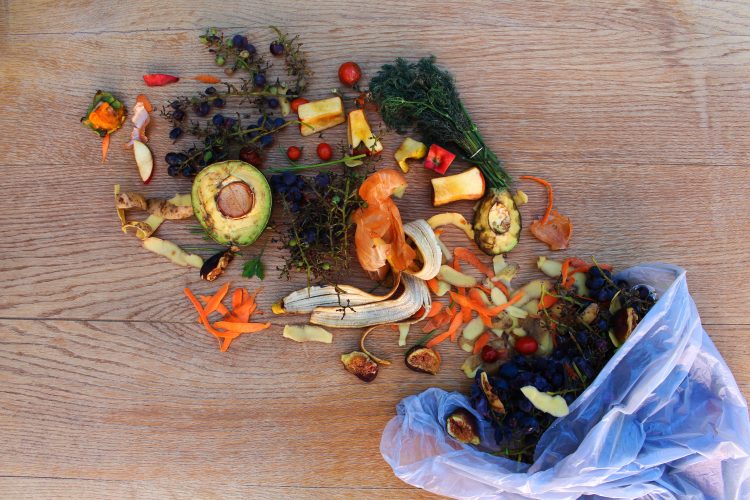The overarching issue of food waste
- Like
- Digg
- Del
- Tumblr
- VKontakte
- Buffer
- Love This
- Odnoklassniki
- Meneame
- Blogger
- Amazon
- Yahoo Mail
- Gmail
- AOL
- Newsvine
- HackerNews
- Evernote
- MySpace
- Mail.ru
- Viadeo
- Line
- Comments
- Yummly
- SMS
- Viber
- Telegram
- Subscribe
- Skype
- Facebook Messenger
- Kakao
- LiveJournal
- Yammer
- Edgar
- Fintel
- Mix
- Instapaper
- Copy Link
Posted: 16 June 2022 | Christina Bauer-Plank | No comments yet
Christina Bauer Plank, Global Vice President of Hellmann’s & Dressings, Unilever, analyses the role of businesses to drive positive change and help consumers reduce household food waste


Often food waste is the result of a lack of time on the part of consumers
The world is on the brink of a new inflationary era. Disruptions to the global food supply chain means businesses and consumers alike are struggling with the cost of necessities and experts predict that food prices could rise by as much as 50 percent this year.
Now more than ever, good food cannot go to waste as it comes at a high cost for both people and the planet. But the issue of food waste is an unseen and under-valued problem that is poorly understood by consumers. As such, the issue often doesn’t receive the attention and action it deserves.
Research from WRAP shows only 32 percent of Britons see a clear link between food waste and climate change, comparative to over half of Britons who say they do see a clear link between aviation and climate change. Most people would be surprised to learn that if food waste were a nation, it would be the third largest emitter of greenhouse gases globally, behind China and the US. In a time where protecting our climate is more important than ever, and the cost of living is so high, the issue of food waste is one we need to act on now.
Our Hellmann’s research shows that household food waste today happens as an unintended outcome of people lacking the time or energy to cook after a busy day, or not having the confidence or skills to make a meal out of the ingredients they find in their fridges. Or we simply forget what sits in the back of the fridge drawer.
Consumers often see the problem of food waste lying elsewhere – within the supply chain or as the fault of retailers and restaurants. However, 61 percent of global food waste comes from within our own homes, and in the UK a staggering 70 percent of food waste is attributed to households. So, there is a job to be done for businesses with a direct consumer interface to educate people and help them better understand the issue by offering them simple solutions that allow them to be part of the solution.
We know that no one ever sets out to throw good food in the bin. Through smart interventions, we can help consumers to be more resourceful in the way they shop, store and prepare food and, in turn, reduce their food waste.
How Hellmann’s is Inspiring Change
Hellmann’s believes that food is too good to waste and is committed to using its platform to make a positive impact at scale. As a global brand that is present in 50 percent of homes across countries like the US, the UK and Brazil, we have an opportunity and the responsibility to help consumers become better food managers and reduce their waste.
In the past year, Hellmann’s has been able to inspire more than 200 million people across the US, Canada and the UK to turn their left-behinds into easy, tasty meals through our ‘Make Taste, Not Waste’ campaigns, and leveraging behavioural science to arm families with the tools to be more resourceful with the food they have on hand.
In 2021, we partnered with behavioural scientists BEworks in Canada and other global experts to conduct one of the longest and largest consumer behaviour intervention studies on household food waste, and uncover simple solutions people can use at home to reduce food waste without sacrificing the enjoyment that comes from mealtimes.
Most recently, a US pilot study of our Hellmann’s behaviour change programme showed that simple interventions like adopting a single Use-Up Day each week, plus use of Hellmann’s Flexipes, led to a 46 percent reduction of household food waste over a four week period.
Our simple, flexible recipes – or ‘Flexipes’ – use Hellmann’s unique “3+1” framework – a combination of everyday ingredients across different categories: a carbohydrate base, most-wasted vegetables or fruit, a source of protein, plus a ‘magic touch’ in the form of spices or sauce to bring a dish together.
The programme proved to be most effective for participants who typically had more difficulty managing their food with 88 percent of participants saying they felt more resourceful in the kitchen after completing the course.
86 percent of people also agreed the programme should be offered to a broader group of people, so as a result we have turned it into a free app called Fridge Night to help people be more resourceful with the food they have in their home. Both the Fridge Night app and e-booklet are available in Canada and the US for download and will be out in the UK later this year.
About the author
Christina Bauer-Plank is Global Vice President, Hellmann’s & Dressings, at Unilever
Christina leads Hellmann’s, one of Unilever’s biggest food brands found in millions of homes across the world. 25 years ago, her PhD in Chemistry took her into R&D at Unilever, an MBA then into marketing. Christina has served in multiple roles across Unilever’s Foods business and now brings her expertise to both the science and communications of sustainability and purposeful brands. Raised on an Austrian farm, she also has a personal connection to the fragility of the food chain and our need to transform it. Christina is member of the Champions 12.3 Consumer Behaviour Change taskforce. Today, Hellmann’s is committed to helping people around the world to become more resourceful with their food and make taste, not waste.









